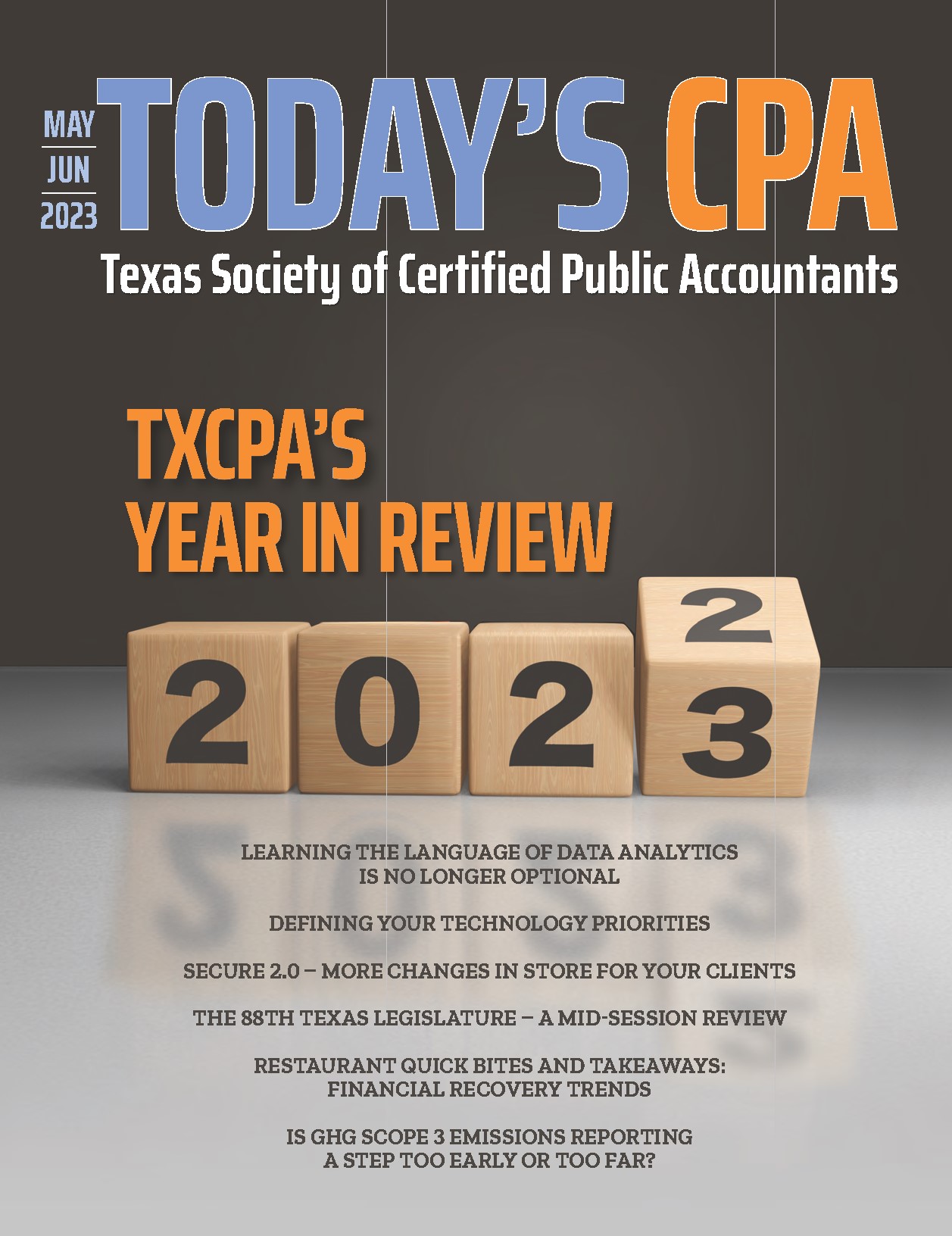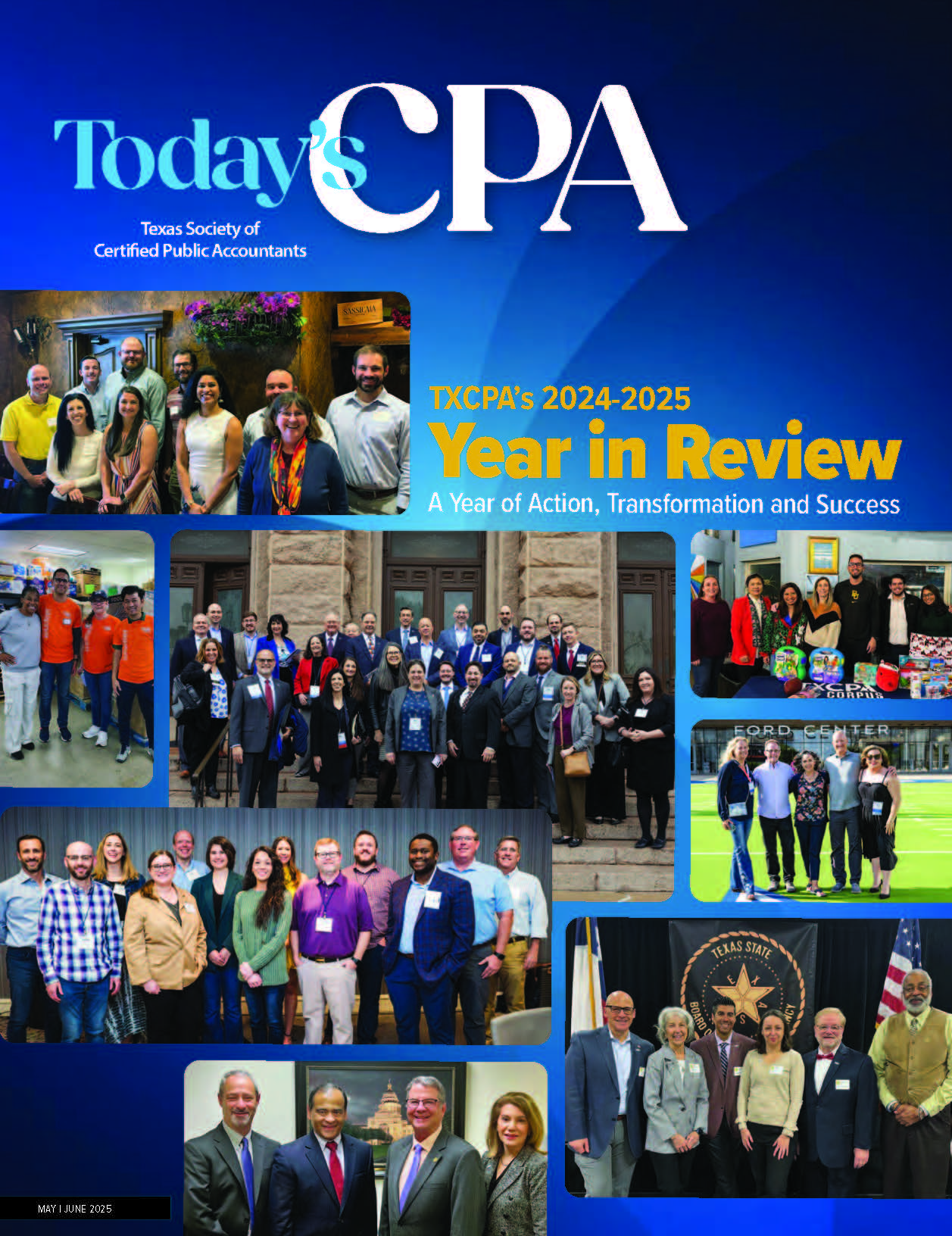Defining Your Technology Priorities
By Thomas G. Stephens, Jr., CPA, CITP, CGMA
Technology continues to amaze us all! Recent developments provide tools and services that many likely considered impossible just a few years ago.
For example, think about the automation choices available to businesses today. Likewise, consider your options for replacing traditional applications and servers with various cloud-based services.
In this article, you will learn about defining your technology priorities so that you can realize all the available benefits while simultaneously mitigating risk.
Recognize the Reality That All Businesses Are Different
To begin, you must recognize that your technology priorities are, in fact, unique to your organization. Therefore, don’t focus on what others are doing. Instead, concentrate on what’s best for you and your team while avoiding a “following the herd mentality.” This approach frees you to choose from a complete menu of solutions and platforms instead of only a subset of possibilities.
Embrace Communication and Collaboration Tools
Remote and hybrid work environments are here to stay. While many attribute their rise to the pandemic, these arrangements were already common and growing before COVID-19’s arrival. Unmistakenly, effective communication and collaboration tools are critical to an organization’s success when team members work remotely.
Thus, understanding the capabilities of various platforms such as Teams, Zoom and Slack will help you prioritize the technology you will use to facilitate effective communication and collaboration. Likewise, knowing what you can do with simpler, more personal tools like OneNote and OneDrive can help you deploy a technology stack that works well for your team.
Of course, you may be in an organization where remote and hybrid work environments are not yet in the picture. If that’s the case, communication and collaboration tools like those mentioned above will not likely be a high priority. Nonetheless, you should expect to see the need to become familiar with these technologies in the immediate future as the labor market becomes even more competitive.
As part of that process, you may want to consider non-traditional collaboration tools, including portals, electronic payments and eSignatures. These three tools offer improved efficiencies, reduced transactional friction and improved security. Further, in many cases, you can access and capitalize on these tools with no out-of-pocket cost, increasing the ROI associated with these tools and removing any financial barriers to entry.
Consider a “Serverless” Environment
Moving toward a serverless environment could and should be a top priority for many businesses. While this approach is an evolving strategy for small organizations, you can expect more organizations to move in this direction over the coming decade. Of course, the availability of robust and stable cloud-based platforms is the underlying technology that facilitates this trend.
For example, consider the rise of cloud-based accounting solutions. A decade ago, almost all businesses – regardless of size – utilized an accounting application installed on local servers and computers. Today, that is no longer the case, as businesses of all sizes have access to many terrific cloud-based accounting solutions. Further, the availability of cloud-based platforms extends beyond accounting solutions to Enterprise Resource Planning (ERP), Customer Relationship Management (CRM), Human Resource Management (HRM) and other areas.
Cloud-based applications free team members to work from any location with consistent, high-speed Internet access. Establishing this environment as a technology priority could, therefore, help to recruit and retain talent. It also creates a more agile organization that can quickly pivot to meet changing market conditions. Further, in many cases, the serverless organization will see a decrease in overall technology expenditures.
Prioritizing the Technology You Already Own
All organizations should prioritize the technology they already own. Unfortunately, that action does not always occur. For example, it’s common for firms and companies to invest in and implement a specific technology so that it performs fundamental tasks. Yet, the “last mile” of implementation sometimes never occurs. When this happens, the technology is incapable of delivering its expected ROI.
An excellent and all too common illustration of this issue often appears with Microsoft 365 subscriptions. Many organizations have subscribed to Microsoft 365 and implemented the foundational tools in their subscriptions, including desktop applications and email. However, many of these same companies have not implemented other elements associated with their subscriptions, such as:
- Data loss prevention;
- Teams, beyond merely enabling communication and meeting capabilities;
- Power automate;
- SharePoint online; and
- Other cloud-based services.
Keep in mind that Microsoft 365 subscriptions include the services outlined above and others at no additional charge. Thus, by definition, subscribers who choose not to implement these types of tools are not maximizing their ROI in Microsoft 365.
Additionally, you can prioritize everyday applications such as Outlook, Excel and Adobe Acrobat, among others, to achieve better results in less time. In this context, prioritization would likely take the form of training team members on how to use these tools more efficiently and effectively.
Security As a Priority
Another area where business professionals should consider prioritization is security. More specifically, is data security and privacy a top-of-mind concern for all team members? And, if it is not, what must be done to elevate it to the appropriate status?
Cybersecurity risks have never been more significant than they are today. Likewise, private and sensitive information is under siege at seemingly every turn.
To prevent the unwanted consequences of a security breach or disclosure of private data, we must elevate security and privacy to be top-of-mind issues for all team members. Security and privacy must be an “everyday” issue if that’s your priority.
Fortunately, prioritizing security and privacy need not be as challenging as some might fear. For example, a 10-minute “security refresher” in a monthly staff meeting can go a long way toward keeping security and privacy at the forefront of team members’ minds. Additionally, team members must receive appropriate formal security and privacy training to understand the all-too-real and persistent security and privacy risks.
Considering the Options
Technology options available to business professionals have never been better and that’s great news! But, the rapid pace of change can sometimes leave us all feeling overwhelmed by our choices.
To address this issue, focus on what is – or should be – most important to you, your team and your organization. Then, upon defining your technology priorities and being proactive in implementing them, you will likely realize the results you seek.
About the Author: Tommy Stephens is one of the shareholders of K2 Enterprises. At K2, he focuses on creating and delivering content and is responsible for many firm management and marketing functions. You may reach him attommy@k2e.com and you may learn more about K2 Enterprises at www.k2e.com.


















